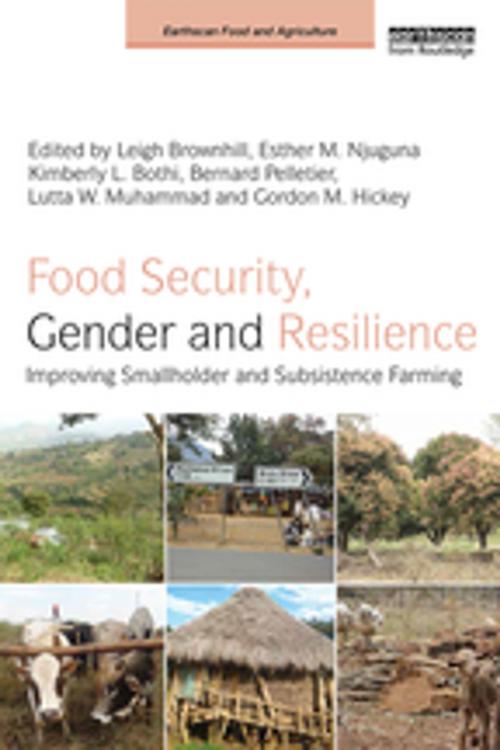Food Security, Gender and Resilience
Improving Smallholder and Subsistence Farming
Nonfiction, Social & Cultural Studies, Social Science, Human Geography| Author: | ISBN: | 9781317596578 | |
| Publisher: | Taylor and Francis | Publication: | January 22, 2016 |
| Imprint: | Routledge | Language: | English |
| Author: | |
| ISBN: | 9781317596578 |
| Publisher: | Taylor and Francis |
| Publication: | January 22, 2016 |
| Imprint: | Routledge |
| Language: | English |
Through the integration of gender analysis into resilience thinking, this book shares field-based research insights from a collaborative, integrated project aimed at improving food security in subsistence and smallholder agricultural systems. The scope of the book is both local and multi-scalar. The gendered resilience framework, illustrated here with detailed case studies from semi-arid Kenya, is shown to be suitable for use in analysis in other geographic regions and across disciplines. The book examines the importance of gender equity to the strengthening of socio-ecological resilience. Case studies reflect multidisciplinary perspectives and focus on a range of issues, from microfinance to informal seed systems.
The book’s gender perspective also incorporates consideration of age or generational relations and cultural dimensions in order to embrace the complexity of existing socio-economic realities in rural farming communities. The issue of succession of farmland has become a general concern, both to farmers and to researchers focused on building resilient farming systems. Building resilience here is shown to involve strengthening households’ and communities’ overall livelihood capabilities in the face of ongoing climate change, global market volatility and political instability.
Through the integration of gender analysis into resilience thinking, this book shares field-based research insights from a collaborative, integrated project aimed at improving food security in subsistence and smallholder agricultural systems. The scope of the book is both local and multi-scalar. The gendered resilience framework, illustrated here with detailed case studies from semi-arid Kenya, is shown to be suitable for use in analysis in other geographic regions and across disciplines. The book examines the importance of gender equity to the strengthening of socio-ecological resilience. Case studies reflect multidisciplinary perspectives and focus on a range of issues, from microfinance to informal seed systems.
The book’s gender perspective also incorporates consideration of age or generational relations and cultural dimensions in order to embrace the complexity of existing socio-economic realities in rural farming communities. The issue of succession of farmland has become a general concern, both to farmers and to researchers focused on building resilient farming systems. Building resilience here is shown to involve strengthening households’ and communities’ overall livelihood capabilities in the face of ongoing climate change, global market volatility and political instability.















